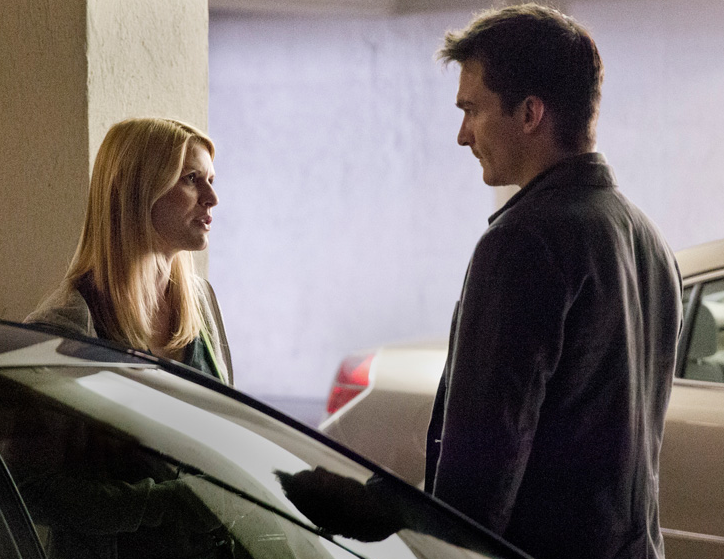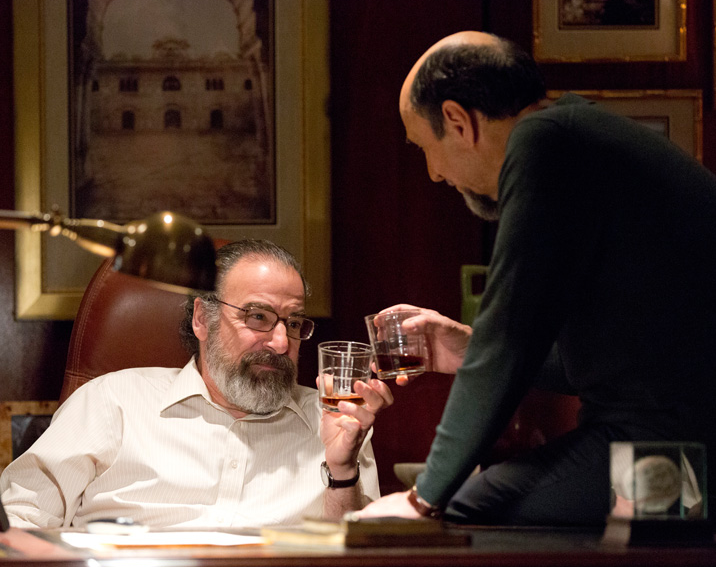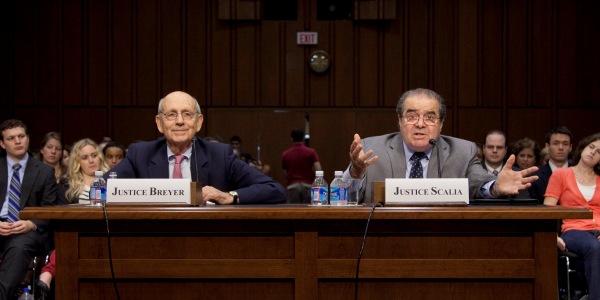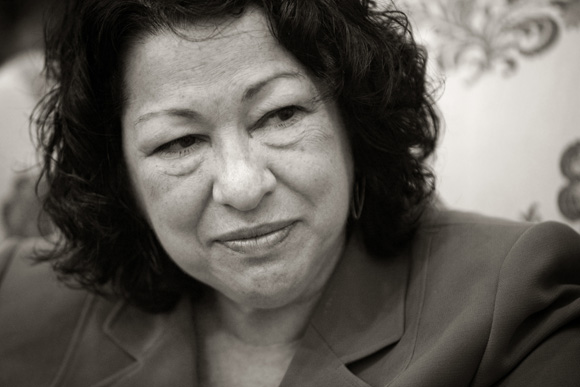
Sam: Before we begin, let me just say: good luck to your Boston Red Sox. As a Seattle Mariners fan, I have no idea what it feels like to cheer on your team in the World Series.
Now, on to this week’s episode. I think we started to see the beginnings of how the Brody family drama is going to intersect with the Carrie-Saul story. But, c’mon, would Jessica really go to Carrie looking for Dana?? It just felt like a huge leap to put them in the same frame again.
And would Carrie seriously put ALL that undercover work on the line just to check on Dana? It seemed all too implausible. But then again, it’s Carrie. I feel bad for Max and Virgil.
I feel bad for Saul, too, since he pretty much thought he’d be taking over the CIA. I mean I did, too, until the senator showed up. I think this also sparked a new track for the Saul-CIA story as well. Might Saul join Carrie in going rogue later on the road? Might Brody fit into that?
This week’s episode left me lots of questions, I guess. What about you? What were your thoughts on this episode?
Jay: One game to go! Man, I’m losing years (and hair) this October. But if they win on Wednesday or Thursday, it’ll all be worth it.
The Jessica-to-Carrie twist was a bit weird, for sure. I know she said she had nowhere else to go, but…really? Nowhere at all? Her local barista wasn’t working that day? Her stylist? Anyone else? I’m pretty certain Carrie is not the person she’d go to in that situation, especially when she’s shown zero interest in Brody’s kids (or wife, obviously) before. I also had the same feeling you had about Carrie: one second she’s saying this is not a good time for her, and the next moment she’s breaking all kinds of unwritten rules and jeopardizing an entire high-level spying operation in order to find a teenager who’s run off with a boy. Just…no.
Saul, for his part, seems ready to go rogue himself — as you suggested. His career’s just taken a hit, his wife seems to be cheating on him, and Carrie may have just blown the one intelligence operation that could manage to save his job.
That said, Carrie’s decision to go off her meds is so. Goddamn. Exhausting. Enough with that meme already. Just put her back on her medication and be done with it. The whole “will she or won’t she?” about taking her drugs is just beyond ridiculous at this point.
I’m not even sure what to think about Dana anymore.
My guess? Brody will be back in a big way either next episode or the one after. I wouldn’t be surprised to see Brody show up in Carrie’s apartment as a cliffhanger to close out next week.
What do you think is coming?
Sam: Totally with you on the whole meds and Carrie saga. I get that the show, as Mandy Patinkin said in a recent interview, is shining a light on mental health issues, but it’s rough seeing it recycled into the plot every season.
I forgot about Saul’s wife and “friend”! That’s a strange development. Not sure how I feel about the show diving farther into it beyond just the continued tension between Saul and his wife.
You know what made me laugh? Quinn’s reaction to Saul looping him in to the secret mission. If he had had a cigar in one hand and a bottle of booze in the other, he could’ve been Bunk.
I think next we may see the Brody connection come back with Carrie getting her face-to-face with Javadi. I have to think the mission will get messier before it gets resolved considering the unfolding clashes between Saul and the new CIA Director.
What are your thoughts on Javadi? How dangerous is this guy, you think?
Jay: Ha, is this our first-ever Bunk reference? How did we not incorporate him into our recaps already? Either way, excellently done.
One thing I find consistently frustrating about Homeland, by the way, is the way in which it perpetually places extremely high-level characters into gritty settings in which their real-life counterparts could not possibly ever find themselves. This happens so frequently at this point that it’s hardly worth mentioning, but I will anyway:
– Dar Adal riding the bus last season
– David Estes frequently hanging out around the secret control room the CIA used to track Brody while he was working for them
– And now, the deputy intelligence director of Iran (right?) driving himself into the country under false pretenses
A few times is forgivable. But the constant switching between worlds is more and more distracting each time it happens. Isn’t part of the point of Homeland to illustrate the enormous fallout from the actions taken by distant bureaucrats and politicians on the lives of ordinary citizens living out their gritty existences? That’s, in fact, the entire internal struggle that animated Brody in Season 1: Issa, a real flesh-and-blood child that he loved, was taken from him as the direct result of men in suits halfway around the world deciding to push a virtual button on a remote-controlled aerial vehicle.
But when everyone’s crossing between these two worlds — going from the halls of power to the “real world” and back — the show is abandoning its (important) point about how desensitizing politics and espionage and bureaucracy can be. The characters are no longer insulated (as their real-world counterparts generally are) from the consequences of their actions: Carrie can go from phone conversations with the interim director of the CIA to being kidnapped by the Iranians in the course of 24 hours.
And speaking of Javadi, it’s hard to tell how dangerous he is yet but I hope they don’t turn him into some poor man’s version of Abu Nazir. What could be interesting is if Carrie ends up involuntarily reenacting the reverse of Brody’s plot last season: forced by the Iranians to work as a double-agent for them after they’ve discovered her ploy by going back to the CIA and feeding them false information or something similar.


















